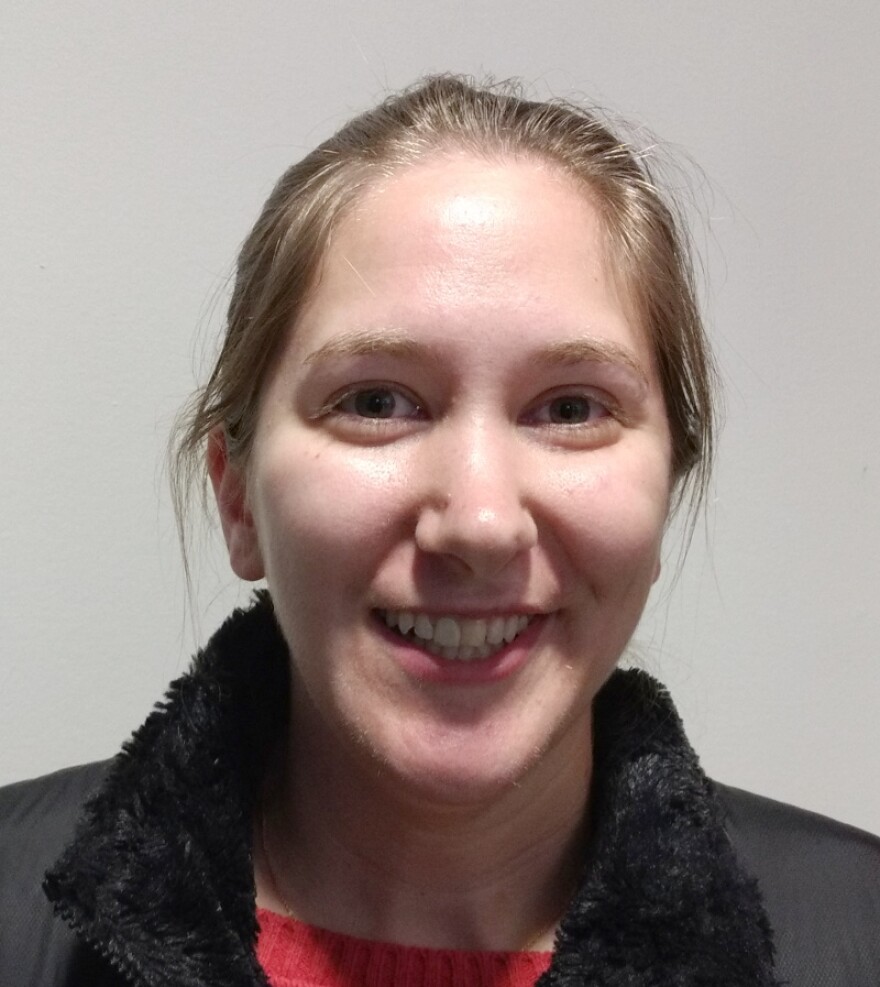An estimated 1,400 people are homeless in Charlotte and Mecklenburg County. Finding them is the biggest challenge for those who provide shelter and other services. That job falls to the outreach staff from the Urban Ministry Center -- a sort of emergency response team. WFAE's David Boraks rode along on Wednesday as they checked on homeless people uptown.
Allison Winston leads the team, which patrols the streets offering help to homeless people. On North Tryon Street, we spot a man in front of an apartment building, with an umbrella and a pile of belongings.
"Hey sir, how you doing?" Winston asks.
"Good," the man replies.
"We're with the Urban Ministry Center. Just coming around to make sure people are all right in this weather. You doing OK?"
"Well, I'd like to get off the street," he says.
"Do you want to come to an emergency shelter?" she asks, and begins talking to him about the options.
During this month's cold wave, as many as a thousand people have packed local shelters every night. But dozens more have chosen to stay on the streets. Winston says her team's job is to engage with people, win their trust, and try to get them on a path to permanent housing.

"Really focusing on the chronically homeless and those who are most vulnerable, really to ensure that people who are living on the streets in this kind of weather have what they need in order to survive. And then on a normal day-to-day basis really try to connect people to housing and other resources that they need," Winston said.
The team has four employees, all paid staffers of the Urban Ministry Center. Outreach worker Adam Calderone says their clients are people who are least likely to seek help.
"So we have to bring our services to them. That might mean uptown it could mean camps, it could be anywhere from Pineville to Huntersville East and West Charlotte," Calderone said.
Calderone says he and his teammates find people during drives around the city and county. Often, they get tips from police and residents. They get to know people by name, and learn their stories of homelessness. They keep notes of their encounters, and there's a bit of technology, too - a computerized map.

"Anytime we're meeting people that are sleeping outside, we have it mapped on a map - all of Charlotte Mecklenburg ... different camps. Maybe it's under a bridge with explanations of how you would find this person," Calderone said.
During our visit to Tryon Street, Winston and Calderone made sure all the people they met had either a shelter plan for the night, or other things they needed like coats, gloves or sleeping bags.
Sometimes, that's the best they can do, says Winston.
"One of the biggest challenges for me personally is kind of working with clients who are not willing to go to the shelter because much of our population are folks who are camping or who have severe mental illness or are kind of like in the throes of substance abuse," she said.
Winston is 27 and has a master's degree in social work from UNC Chapel Hill. Calderone is 25 and once thought he was headed to law school. That changed when he came to work at the Urban Ministry Center as an Americorps volunteer.
So why do they do this?
"What it boils down to to me is that I believe really strongly, like from the bottom of my heart, that everyone deserves housing and that housing is a basic human right. Experiencing homelessness is like the worst way to live. It's just a terrible human condition that in a society as wealthy as ours doesn't have to exist," Winston says.
Calderone says he likes getting to know his clients as people.
"Seeing that step from working with somebody in the woods, who's at a very vulnerable state, to moving them into an apartment and seeing the change, and then eventually once they're in housing and kind of seeing them change over time, it's a really impactful thing," he said.
Back on North Tryon Street, Winston talks through overnight options with the man outside the apartment building. There are plenty of beds in various shelters, she tells him.
But he's not sure. He's worried about how to move his cart full of clothes and other belongings.
"If I could come back to where I am after I go there, then that's fine. But I have a cart," the man says.
Winston replies: "OK, so you want a ride to the shelter?"
"Not if I have I have to take a bus on the way back. I'll just pass. I don't wanna risk it," he says.
In the end, the man declines. But Winston and her team will back today, with a new offer of help.







